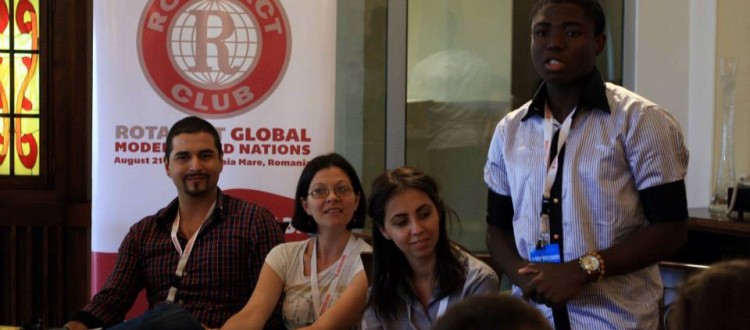Country Delegates at work – position papers and research
We welcome you all to the United Nations High Commissioner for Refugees at Rotaract Global Model United Nations Conference 2016. For Rotaract MUN at Change the World New York Secretariat it is a honour and privilege to serve as the Chair for the duration of the conference. The agendas/topic areas for the committee are as follows:
Threats to International Peace and Security Caused by Terrorist Act
The Impact ofSocial Media on Democracy
Media Effects during Violent Conflict: Evaluating Media Contributions to Peace Building
The Background Guide with a brief description of each topic area has been sent to all our Country Delegates earlier and we hope that you have given some considerable amount of time to read and further analyse it to understand the topic areas in a refined manner.
The next important step is to prepare a Position Paper for each topic separately and submit it to us latest by 7th March, 2016.
(Please ignore the date so mentioned in the attachment, Position Papers Grading Rubric.7th March is the LAST date to submit the Position Papers. Do abide by the same.)
Please take in consideration the following points to get started with your position papers.
Position Paper is an essential part of this conference, in particular and we would like you to start with the drafting as soon as possible. Please refer to the background Guides once before starting.
A Position Paper is a diplomatic statement of your country’s position on the issues in your committee. For examples, if you are a delegate representing USA in the UNHCR, you will write a paper detailing USA’s position on the topics/agendas to be discussed in the Committee.
Position papers serve as a valuable means of preparation. They involve researching all aspect of a country’s history and background, from politics and geography to economics and allies. Once country research is complete, delegates must use their knowledge of the country’s background information to write a position paper on the topics for discussion.
Position papers are a tool used to clarify a country’s position, to provide ideas for negotiation, to examine all sides of the issue and to practice written diplomacy. Position papers not only help delegates understand committee topics and a country’s position, but all assist the judges/chairs in evaluating a delegate’s understanding of their country and the issue facing it.
Position papers are no more than two pages in length. Your position paper should include a brief introduction followed by a comprehensive breakdown of your country’s position on the topics that are being discussed by the committee. A good position paper will not only provide facts but also make proposals for resolutions. It is required to write a separate position paper for each topic in the committee because it helps organise ideas better.
It should be written in strict diplomatic language. There should be a short introductory paragraph, followed by three paragraphs on the topic. The paragraphs are as follows:
HISTORY AND INFORMATION OF THE TOPIC
This section should include a short introduction to the topic, and some important documents or past resolutions that your country has supported.
These documents can be used as evidence in formal debate, perambulatory clauses in resolutions and as insight for other delegates as to your position on the topic.
This section should provide a short background, which helps delegates to understand what has previously been resolved on the topic.
Conclude with your country’s basic position on the topic.
YOUR COUNTRY’S POSITION ON THE TOPIC AND WORK ON THE ISSUE
Your country’s position should be stated in diplomatic terms.
Your country’s work on the issues should cover what your country has done with its borders (if applicable), with allies and with regional partners.
What has your country done within the world community?
Why is your country a shining example, needs assistance, has made progress, or can help other countries on the topic?
WHAT YOU PROPOSE TO DO IN THE FUTURE
You should revisit the position of your country.
Assess the progress that has been made on the issue.
Propose what your country would like to do in the future. Are there any upcoming conferences or summits?
Make a proposal for what the world community should do (these statements can later be used in your resolution).
Conclude
Use the attached document (Position Papers Grading Rubric) to understand the same structure and the requirement in a better manner.
There is one more attachment with this mail which is a Sample Position Paper and can very well be considered while writing the 3 Position Papers.
Lastly, should you have enquiry, please free to contact us, any of other Executive Board Members via email or facebook page.

